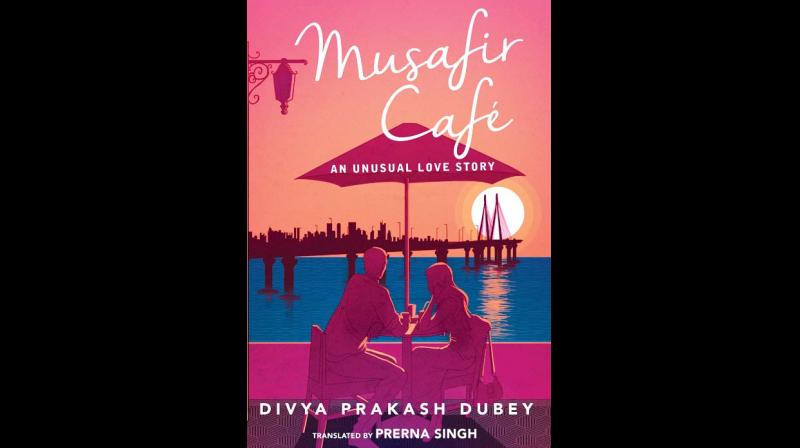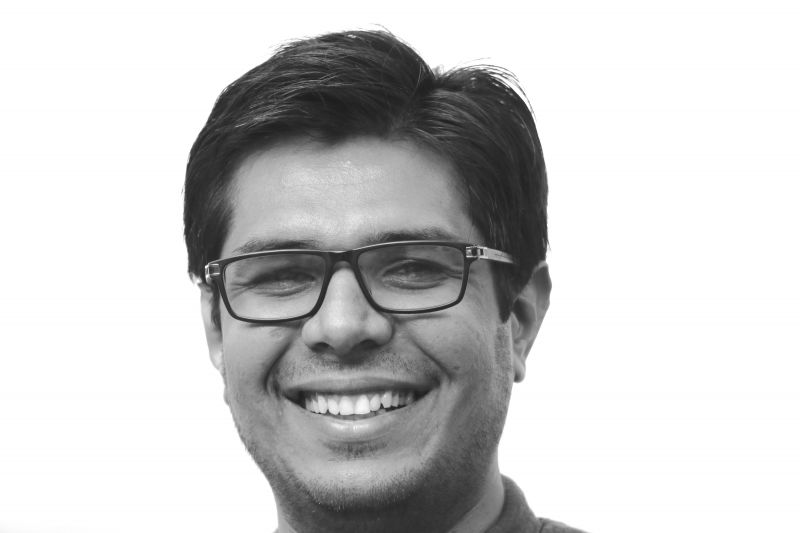The earnest storyteller

Deep yet humorous, Divya Prakash Dubey has been called a “break from the existing moulds”. He’s a bestselling author with couple of short-story collections and a novel to his credit, and he’s making Hindi literature popular again. But if you’re not proficient enough to be reading novels in Hindi, don’t worry, you can get a taste of his creative genius through a translation of his latest book — Musafir Cafe
The novel that explores the complexities of a modern-day relationship has Sudha and Chandar — two individuals who are polar opposites — attempting to negotiate the minefield of love in an ever-evolving city like Mumbai. In conversation with us, the author takes a walk down memory and reminisces on his inspiration for the novel – Dharamvir Bharati’s Gunaho Ka Devta, saying that he broke down into tears when he first read it.
“That is where the idea for Musafir Cafe germinated from. All of us have to-do lists in life, and by the time we are done ticking things off our list, we realise that we haven’t lived at all. Musafir Cafe is this metaphorical place where an individual comes to tick things off his or her life’s to-do list,” Dubey says.
 Divya Prakash Dubey
Divya Prakash Dubey
Shedding light on his nuanced characters, he describes Sudha as an honest, outspoken person who’s always in your face. “Every story hangs by a thin thread between fact and fiction. Sudha is an amalgamation of many upfront, extroverted and successful women that I have encountered in my life. Even the concept of Musafir Cafe was moulded after speaking to many travellers who have left worldly responsibilities behind to travel and experience life one day at a time. That is the feeling I want to Musafir Cafe to reflect,” he says.
He also goes back to talk about his love for Dharamvir Bharati, saying, “What inspires me is the way he is able to capture emotions. When you read his literature, it feels like the author has gone through every bit of the pain that he has managed to put down on paper. It’s said that a Bollywood producer wanted to adapt Gunaho Ka Devta into a film, and he asked Bharatiji to write the script, but the man refused, saying that he was not willing to undergo the pain depicted in the story once again.”
Dubey calls the need to translate his book into English “simple math”, saying, “Indian middle-class parents force their children to read English books in the hope that they will pick up some good vocabulary. I want to cater to a wide audience, and offer them a story that has a sense of maturity to it.”
As he continues to come out with gems like Musafir Café, we want to know how the author pushes himself on the days when pen refuses to move on paper, and he responds, “I don’t really believe in writer’s block. There needs to be an urgency in the story that you are trying to tell, and once you have that urge to tell the story, writer’s block ceases to exist. You need to know what you want to say. For a writer, the reaction invoked is the greatest motivation to keep writing.”
HT0

